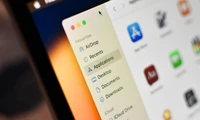Report: Apple's American semiconductor production increases with the addition of the Apple Watch S9 SiP.

A new US government is taking office, and its government plans to encourage companies to build in the US rather than overseas. According to a report, it seems that the company has expanded chip production based on the US foundation.
"TSMC Arizona is currently producing two chips for Apple"
Culpan writes in Culpium:
TSMC Arizona has adopted its second Apple product. In addition to the A16 processor for the iPhone (which I shared previously in September), it seems from sources that the wafer is also producing an SiP (System-in-a-Package) for the Apple Watch. This product is believed to be S9 SiP (although somewhat uncertain, with 99% confidence). TSMC Arizona is producing this at N4 (a part of the N5 family process node), while S9 is produced in Taiwan at N4 and is a derivative of A16, making this a reasonable inference.
Adding another Apple Watch SiP to US manufacturing may not be a big problem, but as Kulpan points out, this is the second chip that Apple produces in TSMC Alaska.
Moving from one chip to two is, in a sense, doubling what the company has done before. And it's likely that Apple will trumpet this transition in future press releases—probably after US President-elect Donald Trump takes office at the end of December.
The expansion of Apple's investments in the US may be aimed at avoiding import duties
President Trump’s government is expected to impose strict tariffs on products brought into the US from overseas, but Apple hopes to avoid such economic burdens as much as possible.
Tariffs on Apple's US-based companies could undermine its competitiveness compared to large technology firms based in Korea (Samsung, etc.).
This argument worked well for Apple during Trump’s first term, and at the time, the company moved its investments into US projects more than before.
According to today's report, it seems that Apple is also following the same strategy as before Trump’s inauguration, with new announcements expected in the US over the next few years.
What does it mean for Apple to expand chip production in the US? I expect more stories like this one. Please share your thoughts in the comments section.
The Best iPhone Accessories
- "Anker 100W Power Bank"
- "6.6-foot USB-C Cable"
- AirPods Pro 2 (currently selling for $189, previously $249)
- iPhone Magnetic Car Mount
- HomeKit Smart Plugs 4-pack
カテゴリー
最新記事
- 静かなキーストロークと高い生産性の向上を実現する、STEALTH KEYBOARD SM3 メカニカルキーボードのレビュー。
- その古い電話が目の前で火事の原因になった。
- アップル招待とアップルカレンダーの違い:10個のポイント
- アップル @ ワーク:2025年にアップルがGoogle Workspaceに対抗する製品をリリースするのか?
- Apple は iPhone SE 4 を発表する特別なイベントを開催する可能性が低い。
- 今日の NYT Connections ヒントと解答 (2 月 8 日 #608)
- Ubuntu 20.04 LTS のサポートが終了します。
- 読み込みが間に合わない? AI に読んでもらいたいですか?
- これは私が愛用する聖杯 ブルーレイプレーヤーです。
- 来週、新しい Apple 製品の発表が予定されています。詳細は下記の通りです。



